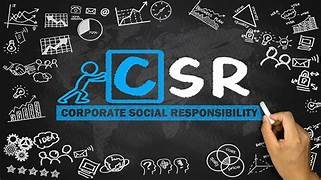CSR
Sirvinson Biotech CSR Responcibility
CSR
Corporate Social Responsibility (CSR) in the pharmaceutical industry involves various practices and commitments aimed at improving public health and welfare while maintaining ethical standards. Here are key aspects of CSR for pharmaceutical companies:
1. Ethical Research and Development
- Clinical Trials: Ensure transparency, participant safety, and informed consent in clinical trials. Adhere to strict ethical guidelines and regulatory standards.
- Drug Safety: Conduct rigorous testing to ensure the safety and efficacy of drugs. Monitor and address any adverse effects.
2. Access to Medicines
- Affordability: Work towards making medicines affordable for low-income populations, including tiered pricing models and patient assistance programs.
- Availability: Partner with governments and NGOs to improve drug distribution in underserved areas. Support initiatives that enhance healthcare infrastructure in developing countries.
3. Environmental Stewardship
- Sustainable Practices: Implement sustainable practices in manufacturing processes, such as reducing waste, minimizing energy consumption, and lowering carbon emissions.
- Green Chemistry: Invest in research and development of environmentally friendly chemical processes.
4. Ethical Marketing and Transparency
- Honest Communication: Provide clear and accurate information about products, avoiding misleading claims.
- Marketing Practices: Ensure marketing practices are ethical and not targeting vulnerable populations inappropriately.
5. Community Engagement
- Health Education: Support public health education campaigns and initiatives that promote health and wellness.
- Philanthropy: Contribute to charitable causes, including funding for medical research, disaster relief, and community health programs.
6. Employee Welfare
- Fair Labor Practices: Provide fair wages, safe working conditions, and opportunities for professional development.
- Diversity and Inclusion: Promote a diverse and inclusive workplace, ensuring equal opportunities for all employees.
7. Compliance and Governance
- Regulatory Compliance: Adhere to all regulatory requirements and industry standards. Foster a culture of compliance and integrity.
- Anti-Corruption: Implement anti-corruption measures and maintain transparency in dealings with healthcare professionals and institutions.
By focusing on these areas, pharmaceutical companies can build trust with the public, enhance their reputation, and contribute positively to global health outcomes.





